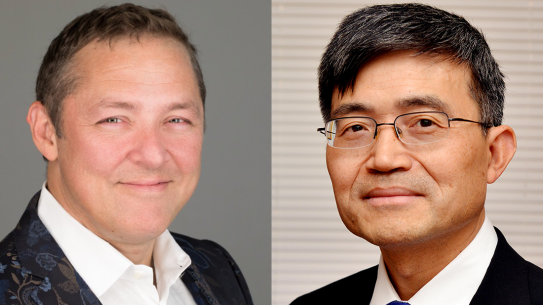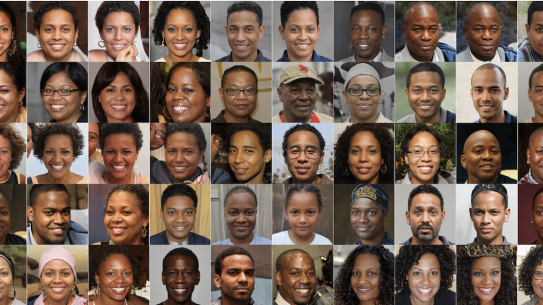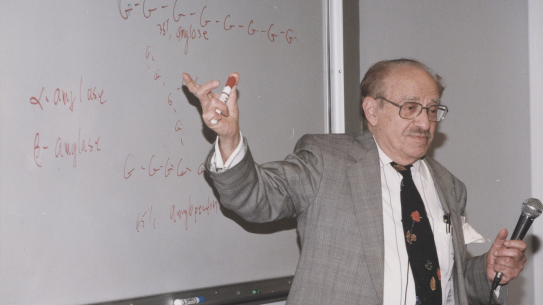Smart Cities Proponents from Germany Convene at NYU Tandon
Experts in clean energy and smart cities at NYU Tandon have long had a congenial, mutually beneficial relationship with colleagues in Germany. Back in 2014, stakeholders signed a Letter of Intent (LOI) to collaborate on technologies and innovation between the School of Engineering, the German American Chamber of Commerce (GACC), the Borough of Brooklyn, the 200-acre Berlin Cleantech Business Park and Innovation Center, and the Berlin Senate Department for Economic Affairs, Technology and Research.
At that time, tenants at the then-new Cleantech Innovation Center visited New York to take a GACC crash course on the U.S. market entry, and Tandon agreed to collaborate on research and lend entrepreneurial support.
Since then, ties have only deepened, and in 2016 Tandon’s Future Labs network began working to bring German energy entrepreneurs to Brooklyn. The first German green-tech company to join the Urban Future Lab was MeteoViva GmbH, a SaaS (software as a service) provider for energy-efficient building management.
On December 7, Jean-Marie Bergeal, the CEO of MeteoViva, was on-hand at the Urban Future Lab to explain how MeteoViva helps customers save an average of 25 percent of their energy costs in corporate buildings while ensuring comfortable temperatures and reducing the carbon footprint.
The occasion was an Innovation Seminar sponsored by the GACC and hosted by Kurt Becker, Tandon’s Vice Dean for Research, Innovation and Entrepreneurship; and Pat Sapinsley, Managing Director of Cleantech Initiatives at the Urban Future Lab.
Bergeal was joined on stage by Bernhard Pfleger, the CEO of the U.S. division of Pixida, a company researching and developing mobile apps for use in the Internet of Things (IoT) arena, with an eye to helping cities become smarter and more connected.
Giving an overview of smart-city initiatives in Germany was Jan Fritz Rettberg, the Head of Innovation Management at Dortmund University’s Institute of Energy Systems, Energy Efficiency and Energy Economics, who explained that digitalization and new technologies were not final goals for any municipality, but mere tools. “A city becomes smart and sustainable by investing in human and social capital — as well as in digitalization and tech — in order to enhance economic stability and, above all, quality of life,” he asserted.
As in the U.S., he said, German engineers and technologists are working on smart homes, smart commercial buildings, smart traffic and parking solutions, e-mobility, and other such areas. “We are heavily engaged in breaking down silos and coupling sectors for maximum efficiency,” Rettberg explained. “The good news is that there is a lot going on; the bad news is that we still have much to accomplish.”





